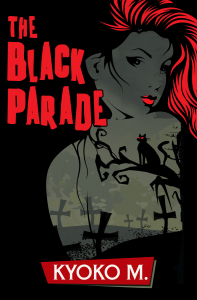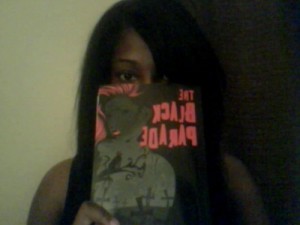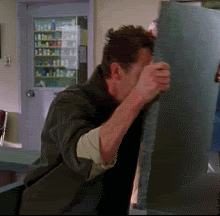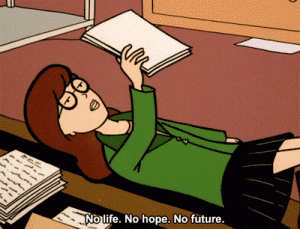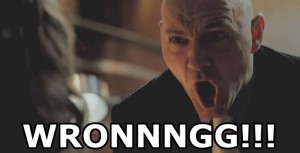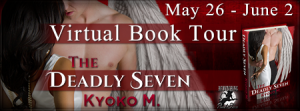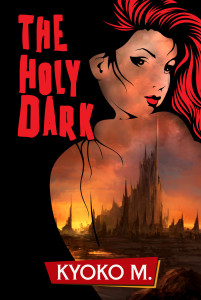We’re heading into October, the spooky scary monster month, so why not sit down with me and a panel of awesome authors to discuss Mythological Tropes in Fantasy and Sci-Fi?
Archives for : authors
Category: Author Events
Tags:authors, blog post, ConTinual, fantasy, fiction, kyoko m, mythology, panel, science fiction, tropes, TVTropes
Category: Author Events
Tags:author interview, authors, black panther, black panther anthology, black panther: tales of wakanda, blog post, fiction, interview, kyoko m, milton davis, milton j davis, of cinder and bone series, the black parade, urban fantasy
Hey, everyone! Check out my all-new interview with visionary author and publisher, Milton J. Davis!
Category: Author Events
Tags:anthology, author event, authors, black panther, black panther anthology, black panther: tales of wakanda, kyoko m, world of wakanda
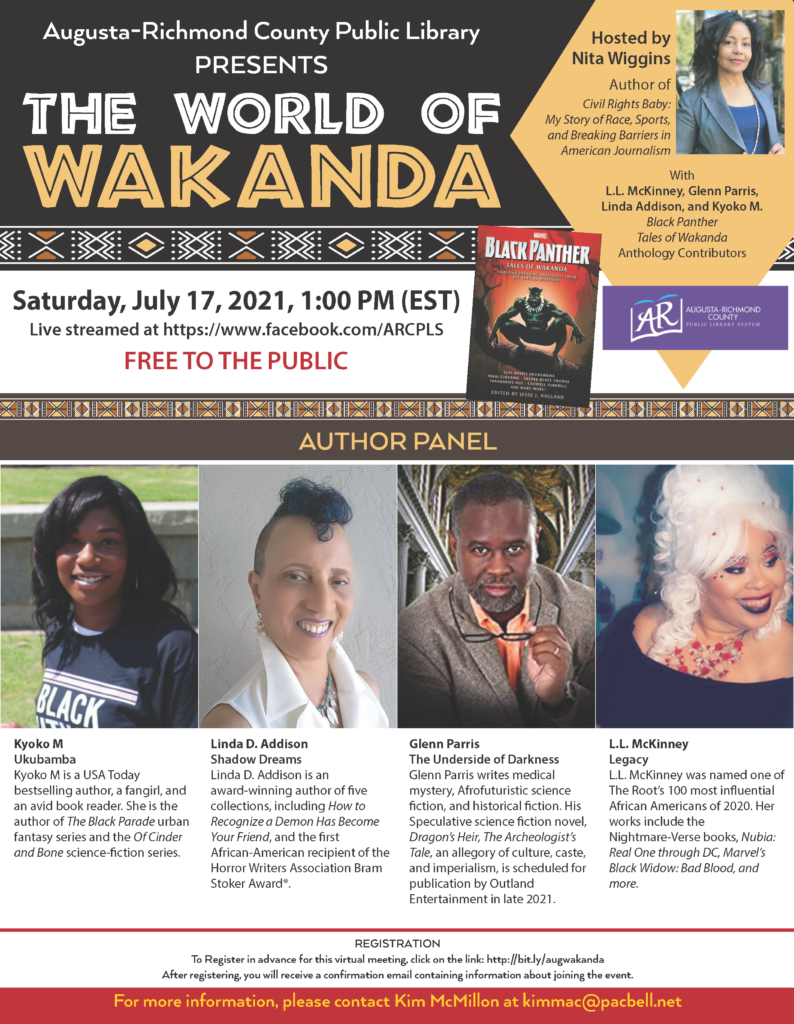
Join us for the World of Wakanda virtual panel on July 17th, 2021 at 1pm EST! Information in the flyer above.
Category: Author Events
Tags:authors, blog post, boxed set, jordan amador, kyoko m, permafree, the black parade, the black parade series, the holy dark
Good evening, ladies and gents! I have a brief announcement for you.
The Black Parade is almost always a permanently free (permafree for short) title, but a marketing opportunity has cropped up that asks for me to unpublish the novel on Smashwords, which subsequently will take it down from the Nook, iBookstore, Kobo, and a few other smaller retailers. Don’t panic! It’s temporary. The book will go back to being permafree November 16, 2016.
If any of my fans are referring their friends to this novel as being free, please contact me directly at theblackparadeseries@gmail.com and I can offer them a free copy myself. The title will be .99 cents on Amazon once the permafree drops when the title is pulled from other digital shelves. After November 16th, the title will go right back up as a free novel. No other permanent prices changes will be made to the other books. Keep in mind, it has also been entered into KDP Select, so if you subscribe to them, you can read it for free there as well.
Plus, we’re fast approaching my 3rd anniversary of being a published author, and it’ll be the one year anniversary of The Holy Dark. In celebration, it will be free to download all day long July 19, 2016. I’ll make another announcement closer to the date as a reminder for old and new fans.
Thanks for hanging in there through all my crazy shenanigans. I will post about the new boxed set in just a few days, so be on the look out for a fantastic opportunity for some new reads!
Kyoko M.
Category: Inspiration, Things X Taught Me About Writing
Tags:authors, blog post, personal post, she who fights monsters, the black parade, the black parade series, the deadly seven, the holy dark, writing, writing advice
“What’s it like to be a self-published author?”
A little dramatic, but hey, it’s accurate. This is my second year as a self-published author, and as insane as it sounds, I’ve actually put in twice the work than I did my first year.
To keep with tradition, here’s a rough estimation of my stats from BookTrackr.com:
Copies Sold: 2232
Free Copies Sold: 13994
Reviews: 125
Money Earned Since 1st Publication Date: 2727.53
A marketed improvement from last year, no doubt. However, the same thing can be repeated as my first retrospective blog post from last year. Being a self-published author is a slog. It’s a long, arduous journey of walking across a burning desert dragging our books along behind you like Will Smith in Independence Day. And yes, you will occasionally yell at them, stop, and kick them a few times while insisting you could have been at a barbeque.
Very few authors have it made, and the ones who do will still tell you that this is an extremely difficult career path to navigate. However, having tried and failed at several thousand things, I can happily provide a few lessons that I’ve learned over the past year.
-No matter what happens, some authors will always insist that you have to “choose a side” between self-publishing and traditional publishing. You can’t escape it. People seem happiest when they can label something and identify an enemy, and so the best thing to do is straddle the fence. Neither side is “right” or “wrong.” They’re simply different entities. Your life will be infinitely easier if you don’t draw a line in the sand. If you feel strongly enough to do so, sure, go ahead, but don’t be a bully and don’t be unprofessional about it. You can burn bridges you didn’t even know were there if you do.
-Amazon is always going to do whatever it wants to do. We as authors don’t have control over it because we don’t own it, and we certainly shouldn’t feel entitled to certain kinds of treatment or making calls that aren’t ours to make. There are other platforms from which to sell books, and if Amazon makes you unhappy, pursue them, or switch to traditional publishing. You can waste a lifetime complaining on forums about how you dislike their policies and it will change nothing.
-If your work permits it, joining other authors in a boxed set can help get you into the hands of readers that you might not have had access to otherwise. As long as you are treated professionally and aren’t operating at a loss, give it a shot. I’ve been in two of them so far, and it’s done wonders for my discoverability. There is no perfect boxed set, though, and sometimes they promise you goals that are unrealistic or unattainable, but it’s still a rewarding experience and fantastic exposure. Plus, meeting other authors and collaborating with them is almost always a great idea.
-If you’re into fandom-related activities like comic/anime cons, try reaching out to the organizers. All they can do is say no, and that’s the worst case scenario. You might be able to stumble across an opportunity to promote your work and discover a new audience as well as meeting like-minded people for a few days of fun.
-The permafree model is still a good way to go if you are 100% new at publishing and have no following. It opens up doors and gets you the most basic level of readers, the freebie seekers. However, the next step that you’re looking for is people who are mildly interested in your work. This tier is very desirable because unlike the freebie seekers, they will shell out cash for your work, but you have to be very patient as some of them can lash out if they dislike your book and it can take a long time for you to gather reviews. If you reach this tier within your second year of publication, make sure that your work is as high quality as you can make it and make sure that you have multiple works. The permafree model really only works if you have a series, not a standalone or two-book series.
-If you find yourself starting to consistently spend money on editing, marketing, promotions, and other expenses, keep track of them for the sake of your taxes. Unfortunately, royalties are not taxed in the US with Amazon, so when Tax Day comes, you owe the government a fat check and if you’re a low income earner like me, it evaporates your refund. Seriously. I got $77 back from the IRS this April. It’s that awful.
-If you’re writing a series, particularly in science fiction or fantasy, write yourself little notes of characters, plot threads, or premises that could be good spin offs in the future. I wrote a four book series because I feel that this is the length of Jordan’s journey as a character, but the supporting cast does have the potential to be explored as well. Don’t get too focused on just one thing. Most successful authors have a couple of novellas, short stories or short story collections, or anthologies that help line their pockets after they’ve created their own fanbase. Always keep a backlog of ideas for future works in case you conclude one series. Keeping momentum is extremely important.
-The key to staying afloat is consistency. One book a year is the standard, and that’s for traditional publishing. For self-published authors, especially debut authors, it’s actually 1-3 books a year for maximum saturation and exposure. A lot of people hate the long waits between books (seriously, I am so impatient for the release of Peace Talks that I cannot stop writing Dresden Files fanfics) and if you have multiple works drop per year, you can accumulate more readers in a fraction of the time.
-Stay connected to your fans however you can. Social media is taxing, but I’ve had a lot of new readers reach out through Twitter and Facebook to say they enjoyed my work. Say thank you every single time. Doesn’t matter if it’s just a short little post. Do it. Thank every last reader you get and make sure you leave a good impression with them, because while social media marketing and online promotion are powerful, Word of Mouth is still the best way to get readers. It’s the hardest to accomplish, but by far the most successful way to increase your readers. Be gracious and accept fair criticism when it’s given.
-If you have the budget, try creative outlets like having commissions done of your characters or alternative book covers. Fans respond to pictures way faster than text posts, in my experience, and new images from the series are far more likely to get shared than anything else.
-If you start getting negative reviews, only skim them for relevant issues. If it’s just a rant about how much you suck, don’t even read it. Keep on scrolling and don’t get angry. We’ve had too many authors get in needless dust ups with reviewers this year. Don’t respond. Ever. Unless you’re Brock Baker, you are not allowed to mock your critics. You’re an author. Write well and write often and that’s all you can do, no matter how much it bothers you to get nasty reviews. (And yes, one and two star reviews are ALWAYS going to bother you, bestselling author or not.)
-If possible, submit guest blogs/articles to writing sites and other subjects you’re interested in. This year, I had a big success with my article about Natasha Romanoff and feminism on Black Girl Nerds, and while it didn’t immediately reflect in sales, it got me a lot of buzz and some new followers on Twitter from my key demographic of readers. Social media is NOT about selling books; it’s about connecting with other people. Eventually, some of them might give your work a try, and that’s the important thing. Be genuinely interested in something and be entertaining and intelligent, and often, they’ll come to you.
If anything, my second year in self-publishing has taught me that the best thing you can do is expand your mind and understand that there isn’t one path to growing your readership. There are hundreds, and while you may not instantly rocket to success on your first or second try, you can slowly start to push that boulder closer to the top of the hill. And, if you’re lucky, you have a couple good people helping you push, or you can give advice to the people on the hill next to you doing the same thing.
Here’s to another year and another climb up that hill. Thanks to everyone who has stuck by me and enjoyed my work. I look forward to bringing you more of it soon.
Kyoko
Category: Uncategorized
Tags:Amazon, authors, barnes and noble, itunes, kobo, news, notice, permafree, price change, the black parade
If any new readers are curious about why The Black Parade is no longer free on Barnes & Noble, Kobo, iTunes, or Smashwords, I’ve temporarily put it back as $2.99 for a reason. As I mentioned before, The Black Parade is part of the Secret Worlds boxed set along with 20 other urban fantasy and paranormal romance authors. It will be 21 novels for only .99 cents, and one of the conditions set by the author who organized the set is that my book cannot be free for the duration of the boxed set’s release. That means from May 1st to August 31st, it will be $2.99 on all platforms. Once the summer sale ends, it will go right back to being free for all.
However, I do still offer review copies for free and the book can be gotten for free if you sign up for the mailing list. Please support the boxed set because it’s a fantastic deal and full of phenomenal stories.
Category: Inspiration
Tags:authors, blog post, fiction, personal post, writing, writing advice, writing blog
Y’know what sucks? Being unemployed and your books not selling at the same time.
It’s not just the lack of money, either. I’ve been unemployed before back when my second retail job went under thanks to rent issues in 2012. The funny thing is, the first month is kind of a like a honeymoon period. You wake up when you want to, do what you want to, don’t do what you don’t want to, and feel this general sense of relaxation since you don’t have a set schedule as you don’t have to go to work anymore. You sleep pretty well and you have the free time to do practically anything.
Then it wears off.
Then the stress starts.
Okay, so it’s not like you thought getting hired for your dream job was going to be easy. It’s going to take time. You throw yourself into your writing while you’re praying to God (and sacrificing a goat just in case Satan’s listening) someone hires you. After all, your sales have been pretty consistent for the past few months and you’re slowly building readers, right?
Out of the blue, September hits you with the biggest sales flat-line since you started self-publishing. I’m talking you don’t even make it into double digit sales per week. You close out your September sales with less money than you made in literally four hours at your previous day job. And October is looking to be the exact same way.
No big deal. Deep breath. You can totally handle it. It’s not like you became an author to get rich. It’s probably easier and more lucrative to sell crack than be a self-published author, after all. You’re in this because you love writing and you love stories and you want to share the reading/writing experience with your fellow man. That’s easy enough. It’s what the Internet is for—connecting people together across vast distances.
Except you kind of suck at it.
Twitter? Not that many followers. You get maybe a handful of replies per week. Maybe you should redirect your energy.
Tumblr? Oh, don’t talk about your book. No one cares unless it’s a natural recommendation from a book nerd. Just write occasional fanfics and reblog handsome celebrities and social justice speeches. Anything else and you get unfollowed en masse.
Facebook? Only a tenth of the people who liked your page see your posts, and even less than that like your posts? Right. Uh, keep trying. Maybe it’ll get better.
Then you’re lying in bed for a while, watching television because it’s a fantastic distraction from the horrible current state of your life, your manuscript untouched for days, and then a quiet little voice whispers in your ear the scariest words to any self-published author:
“Why bother?”
“What?” you sputter back indignantly.
“Why bother?” the voice continues. “What’s the point of putting yourself through this misery? You’ve been writing your whole life with nothing to show for it but a couple fans and a pocketful of change. You can’t make friends. You can’t get through to readers. You can’t even make enough money to get your own place by yourself. Just give up. You gave it your best shot. You’d make twice the money if you just settled for a job like your old day job. You’re never going to be the female Richard Castle. You’re never going to be a bestselling author of any sort. Better to figure that out now than before you use up all your savings and die in a gutter somewhere.”
“That’s pretty melodramatic,” you scoff.
“But it’s not far from the truth. Aren’t you tired of this? Aren’t you tired of being a nobody? Of putting yourself out there and almost never getting anything out of it?”
“I have gotten stuff out of it!” you argue. “I’ve met people! Not a lot of them, but enough. And I’ve met some really cool people who think my work is great.”
“Yes, and I’m sure you can pay your student loan bills with reviews,” the voice muses.
You hesitate. This a-hole has a point. Maybe you’re just being stubborn, chasing this dream of yours. Maybe it’s time you grew up and did what thousands of people do every day—shelve the dream in order to make a living. After all, you can’t get what you want. Who reads your work is beyond your control. You can’t hold a gun to your readers’ heads and order them to buy your books. You can’t threaten Bookbub into accepting your book. You can’t convince bloggers to review and spread word of your book on your own. Maybe it is time to throw in the towel. Maybe you were wrong. Maybe your work isn’t that good. Maybe it never will be. You have too many bills to pay. Time to get real.
But then you think about Stephen King’s On Writing. You think about how that man spent the better part of thirty years trying to get his feet beneath him, facing hundreds of rejections day in and day out. Sure, you’re nowhere near as good, but he’s fantastic and even he had to wade through the long stretch of no one knowing who he was or caring about the work he poured his sweat, blood, and liquor into.
“No one cared who I was until I put on the mask,” Bane said in The Dark Knight Rises. The fictional villain had a point. Nobody cares who you are. They won’t care until you’ve made it to the Big Time. Right now, it feels like you’ll never make it, but you’ll definitely never make if you give up. Maybe you won’t. Maybe you’ll never be anything more than an underground author with a tiny fanbase of less than 100 people.
But guess what?
There is one goal you’re still meeting. You’re sharing your story with others, even if it’s not as many of them as you’d like. People are reading your work. People have made the choice to sit down one afternoon with your characters when they could be reading Stephen King or James Patterson or Suzanne Collins or J.K. Rowling. They said yes to you when they said no to so many others. For better or worse, they stuck with you, even if they end up disliking the book, even if they don’t want to move on through your series.
And that is why you still bother.
“Screw you!” you say cheerfully to the voice. “Maybe I’ll always struggle and not be where I want to be, but at least I met my original goal and not even you can take that away from me.”
The voice grumbles and shuffles off to that dark place in the back of your head, kicking over trash cans along the way. You turn off the television—well, after that Castle marathon on TNT ends—and crack your knuckles and open your Word document and get back to work.
You are a poor self-published vagrant and you’ve got work to do.
So keep doing it, against all odds, even those your own doubts and fears present.
Category: Author Events
Tags:angels, authors, blog tour, demons, fantasy, fiction, free ebook, ghosts, jordan amador, michael o'brien, paranormal romance, the deadly seven
Today’s the day! We’re kicking off a week-long blog tour for The Deadly Seven. There’s going to be interviews, spotlights, excerpts, and more coming atcha.
Our first stop is with my good friend, Melanie, over at Fang Freakin’ Tastic Reviews. We’ve got a fun little post about who I’d pick to play the main characters of the Black Parade series if it ever became a movie.
Don’t forget that you can enter to win a copy of The Deadly Seven either as an eBook or in paperback if you visit the post above.
Tune in tomorrow for our next stop!
-Kyoko
Category: Author Events, Uncategorized
Tags:angels, authors, book giveaway, demons, fantasy, fiction, free ebook, mailing list, poltergeists, she who fights monsters, the black parade, urban fantasy

You don’t want to make him angry. He’ll make you watch The Last Stand. It’s a fate worse than death, trust me.
So the first 10 people to sign up for our all new mailing list will get a free eBook copy of The Black Parade. Doesn’t that sound wonderful? You should totally do that right now. You don’t want to disappoint Ahnuld, do you? Go here to be put on the mailing list and redeem your free copy. It’s also going to be your ticket to extra content not found on Twitter or Facebook. I promise to make it worth your while. *bats eyelashes*
In other news, there’s still two days left in The Black Parade’s GoodReads giveaway. I’m absolutely thrilled to see that 189 people have requested to win. That’s fantastic. I think I’m going to make this a regular thing since acquiring copies aren’t super-expensive thanks to CreateSpace and it seems to have engaged a good amount of people. The nicer part is that it’s boosted the book’s numbers on the To Read shelf, and so I hope that those people will someday take the plunge to read my novel whether they win the giveaway or not.
Additionally, we’re closing in on the months between now and when She Who Fights Monsters, the stunning sequel to The Black Parade, will be out on your virtual bookshelves. In case you missed it, there are two excerpts already posted and there’s more to come.
Stay tuned, my darlings!
Category: Inspiration, Uncategorized
Tags:angels, authors, blog post, demons, endings, fantasy, fiction, ghosts, Katniss Everdeen, poltergeists, she who fights monsters, the black parade, the holy dark, the hunger games, urban fantasy, writing
So I finished the final installment to The Black Parade series a few days ago.
Hoo boy.
Prior to the third book, whose working title is The Holy Dark if you must know, I’ve written and finished three books–two novels and a novella. However, I’ve never written a series before and the first thing I have to say is, God bless the crazy sons of bitches who write long running series. I mean, seriously, The Black Parade series is just a trilogy, and I had the HARDEST time keeping everything in line. I think as authors we tend to take certain things for granted when we write. For instance, I didn’t realize just how long The Holy Dark was until I went through and began formatting it and doing the superficial edit.
The Holy Dark’s first draft is 168,197 words. Let’s do a comparison, shall we?
The Hobbit: 95,022 words
The Fellowship of the Ring: 177,227 words
Harry Potter and the Goblet of Fire: 190,637 words
Harry Potter and the Deathly Hallows: 198,227 words
Are you beginning to see my plight here? I’m nowhere near as good as the above authors, but my word count is approaching their glorious numbers and it’s slightly terrifying. However, when I researched word counts of famous novel series, I did notice a trend. They do increase in word count the longer on they continue, and I think it has a lot to do with the process of writing towards the end of a series.
As I wrote The Holy Dark, there were all kinds of things that I had to keep in mind to tie up by the conclusion of the novel. Jordan and Michael’s stories span three books, and several storylines intersect with each other. We also meet new characters in the second and third novels who also have their own lives and stories and backstories. It’s like balancing spinning plates after a certain point. The reason why The Holy Dark took me so long to write (I started it in May 2013 and finished it just after New Years) is because I didn’t fully understand what it takes to end a series. There’s so much material to cover. There are your individual character arcs, the romantic character growth between Jordan/Michael and Jordan/Belial, the series long arc of the battle between the Seers and the demons, the ramifications of what happened in the previous novels, and then the actual plot of the current novel. Does your head hurt yet? Mine certainly does.
Endings, to me, are usually a little easier than beginnings. The original beginning to The Black Parade was Jordan reliving the night she killed Mr. N, but two separate critique groups talked me out of it because action-heavy beginnings with no context tend to work better in movies than in novels. Thus, we had our quiet but tense opening with Jordan waking up and starting her day as a Seer. However, the ending to The Black Parade was pretty much set in my head in general terms. I knew where her character would end up. Same deal for She Who Fights Monsters. The Holy Dark’s ending was a vague concept in my head, but how I got there was nothing short of a doozy. This is the first novel I’ve ever written where the beginning was a lot easier than the ending.
For instance, the first draft of THD is actually the second draft. The first time I wrote it, I got to 50,000 words in about two months. Then I stopped, read it, and panicked because the pacing was dreadful. The plot stopped and started and coughed and wheezed and begged to be put out of its misery. Thus, I had a long chat with my writing sensei and he helped figure out why the novel had such horrendous pacing issues. I had so many scenes that I wanted to write before the series ended that the flow of the novel felt unnatural and stilted. I took everything back to the drawing board, deleted big chunks, altered the narrative, and started up again. I did well for several months and then the end of the year hit. I had so many hours at my retail day job that I missed my 2013 deadline because so much of the story had piled up that I didn’t have time to type it all out. My fingers just weren’t fast enough.
What I’ve learned over the course of writing this first draft is that endings can be difficult because one worries about satisfaction. Is the end of the series satisfying? Where does everyone end up after their three book long journey? What have they learned? What have they gone through? How has it changed them? Is the conflict real and personal? Is it something readers will relate to and cherish? There are so many expectations that consciously and unconsciously crop up when you read the final novel in a series.
For example, I’m not a fan of Mockingjay because it felt overstuffed and convoluted. I liked The Hunger Games the best out of the novels because it was succinct and profound. It also had much less of the Peeta/Katniss/Gale love triangle, which I personally find to be pointless. Katniss is not the kind of girl who needs to be torn over two boys. It’s quite clear that she has romantic feelings for Peeta, not Gale, and I worry that Suzanne Collins dragged the love triangle out for the sake of drama, and not because it needed to be there. Now, granted, I’m sure I will get the same criticism in the future because I’ve got my own love triangle going in my series, but I’m just being honest. Either way, The Hunger Games is still one of the best contemporary novel series of all time. I bring it up because my expectations for where the story would end up was way different from how it actually did. I don’t think that authors should pander to their audiences and fret over what they would enjoy reading, but I do think it’s part of the writing experience anyway. It’s what I struggled with during the epilogue of THD because I had scenes that I wanted to write that I felt the readers would enjoy, but since they weren’t plot relevant, I felt the urge to leave them out. After all, nothing gets people crankier than a too-sweet happy ending. I tend to lean towards bittersweet endings because they are more realistic. It’s the same reason why Harry Potter and the Deathly Hallows’ epilogue is so controversial–a lot of it reads like lousy fanfiction. Being too saccharine in your ending can color the whole series. Hell, my mother and I discussed this last night with the movie Sweet November. We actually liked the movie itself…until the ending. The ending blew it. It just blew. It was a dumb, unsatisfying cop out. That ending ruined the entire experience and cost the people who made it a sale (I found the movie for cheap at a game store and thought about buying it, but then I remember that FUBAR ending and chose not to instead). It’s the same with novels. You can write something beautiful and emotionally crippling, but if you screw up the ending, it can poison your entire series.
Now compact everything I’ve said and shove it inside your ear. That’s how my brain feels right now. Endings are a pain in the ass. This is a shout out to every single author who has ended a novel series: you are incredible and I hope you know that with all your heart. My stories aren’t nearly as complex as something like George R. R. Martin or J.K. Rowling, and they somehow have endings. I will absorb these authors’ wisdom into my own body like an amoeba before I start the first round of editing.
The nice thing about being an author is that you can always change. You can move chapters around. You can delete them. You can expand. You can chase down new plot threads and character arcs and nail them into place. As a wise Autobot once said, freedom is the right of all sentient beings, and I think that is most true with writing. The Holy Dark kicked my skinny ass up and down the year 2013, but it taught me more than I think the first two novels combined. It’s scary to think I won’t be writing about Jordan, Michael, Gabriel, and Belial in the future, but these characters have been beyond fun to write over the past five years. I think that’s also why the ending was so difficult. I wanted to put them to rest with all the respect that I could because they’ve been keeping me company for so long. I suppose that’s sentimental (and borderline clinically insane), but hey, that’s how I roll.
Welcome to 2014, people. Big things are in our future. Stay tuned for more.
-Kyoko
